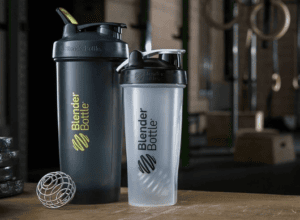When Should You Use Cold Water for Laundry?
-
 By
Sophia Grant
By
Sophia Grant

Washing your clothes in hot water is a great way to remove contaminants. However, it comes with a price. Not only will hot or warm water cause the fabric to break down more quickly but it’ll also add to your utility bill.
What’s more, is that it can also harm the environment. This happens when you’re washing clothes made of synthetic fibers such as activewear (e.g. leggings, tanks, sports bras). Every time you wash them in hot or warm water, they will shed tiny plastic particles, which can eventually end up in the ocean or our drinking water supply.
If anything, it’s a big issue as our wastewater systems aren’t capable of filtering out all of these plastic particles. As a result, they end up in the oceans, where they have the potential to harm aquatic life.
Table of Contents
ToggleWhen Does Cold Water Work Best For Laundry?
Fortunately, there’s a super easy way to prevent those problems—by using cold water washes instead. According to one study, the amount of microfibers that are released during a cold water wash are significantly less compared to using hot or warm water cycles.

That’s not all, it’s also less likely to damage your clothes, meaning they’ll stay new for longer.
On top of that, it uses less energy per load, which will save you money in the long run. More specifically, it can save you up to $66 per year, according to Energy Star.
6 Reasons Why You Should Use Cold Water for Laundry
Cold water, by definition, refers to a water temperature between 60 to 80 degrees Fahrenheit (15 to 26 degrees Celcius).
Here are a few reasons why you should switch to using cold water for laundry.
1. Cold Water Helps Prevent Stains

Mishaps happen. The wine that you’re drinking can easily spill on your shirt and the cooking oil that you’re using can easily splatter onto your shirt.
In cases like that, it’s best to spot-treat the stain with detergent and cold water. Once you’ve removed the stain, you can launder the item as normal with your other clothes using a full cold water detergent cycle.
You never want to use hot water, whether you’re spot treating or putting the garment in the wash, as the heat can cause the stain to set in permanently. For instance, in the case of protein-based stains (e.g. blood), it’ll cause the proteins to break up and become tightly interwoven in the fibers of the fabric, which will make them nearly impossible to remove.
2. It Will Prevent Colors From Bleeding
Warm or hot water can open up the fibers in the fabric and that can cause it to release the dyes. This is especially true for delicate natural fibers too. When in doubt, check the care label. If you see warnings such as “wash before wearing” or “color may wash off”, chances are, the colors can run.
Cold water, on the other hand, tends to keep the fibers closed so color bleeding won’t be much of an issue.
Sorting your clothes by color before throwing them in the wash will also prevent the colors from running. More specifically, you want to separate dark from light colors and wash them in different loads.
3. Washing With Cold Water Helps Your Clothes Last Longer
Warm or hot water can melt certain fibers. Take nylon, for example, it can warp or deform if exposed to high temperatures. Other fabrics such as polyester and spandex have a low thermal resistance and do not resist heat well.
That’s why cold water is recommended for synthetic and semi-synthetic textiles, such as those used in activewear and workout clothes.
4. Using Cold Water Cycles Can Prevent Creases and Wrinkles

Tired of having your clothes come out of the washer wrinkled and creased? One way to prevent this is by using a gentle or delicate cycle on the hot or cold water either.
The cooler temperature will make it less likely for clothes to develop lines and ridges. Not only that but most fibers also keep their shape better in cold water than warmer temperatures, meaning they’re less likely to become wrinkled. This is especially true for wrinkle-prone fabrics such as linen and cotton.
5. Cold Water Washing Can Save You Time
As a general rule, you always want to check a garment’s care tag before washing. It’ll give you all of the care instructions that you need, including whether or not the fabric is washable, as well as the preferred temperatures for the wash cycle.
While most clothes are washable nowadays and can withstand moderate temperatures, some delicates such delicate fabrics such as swimwear and lingerie, should always be hand washed in cold water. If you wash them with hot water in the washer, you can easily damage the fibers.
6. It Will Save Water and Energy

Cold-water washing uses much less water than hot water. For one thing, they’re generally a lot shorter (the water has to be heated for hot water washes and that takes a lot of time).
To give you a better idea, up to 90 percent of the total energy goes toward heating the water for hot water washes whereas this isn’t an issue at all with cold water. By switching to cold water, you’ll also help eliminate greenhouse gas emissions.
According to one study, every household that switches to cold-water washing can eliminate up to 1,600 pounds of carbon dioxide emissions a year.
ACTIVE Laundry Detergent
Our powder laundry detergent fully dissolves even in cold water washes.

15% Off Your Order on Amazon
×Click below to reveal the 15% off coupon for your entire ACTIVE purchase on Amazon.com
When Should You Use Hot Water for Laundry – 3 Reasons For Hot-Water Washing
While cold-water washing has its benefits, there are some situations where hot water is a better choice than cold water clothes washing. We’ll be going over them in detail below.
1. When It’s Flu Season or Someone Is Sick
Does washing clothes in cold water kill germs? The answer is no. While it’ll wash away some bacteria, it won’t get rid of everything. For that, you’ll want to wash your clothes in hot water (higher than 140 degrees Fahrenheit). Some washing machines also have a sanitizing setting, which is designed to kill 99.9 percent of bacteria, viruses, and allergens.

For example, if someone in the house is sick with the flu, you’ll want to wash everything, including clothing and bed linens, in hot water to prevent the virus from spreading. It’s also a good idea to wash your clothes with hot water if you’ve been on a flight to get rid of all those airplane germs.
Tip: If you have an older washing machine that doesn’t get hot enough to kill off bacteria and viruses, you can use white vinegar. It’s mildly acidic and will disinfect your laundry, especially if used in combination with laundry detergent or baking soda.
2. If You’re Dealing With a Bed Bug Infestation
These elusive pests can be found almost anywhere. However, they’re usually brought into the home from other places where humans sleep such as hostels, motels, and hotels.
And if you’ve dealt with them before, you’ll know that they are notoriously difficult to get rid of.
One way to control an infestation is to wash all affected clothes and linens with the hottest possible water setting (ideally 140 degrees Fahrenheit or 60 degrees Celius – any lower and it won’t kill the eggs) in the washing machine and dryer.
Make sure everything is sealed properly in plastic bags before you can wash clothes from them. Anything that can’t be washed should be thrown away or put in the dryer for 30 minutes at the highest possible heat setting.
3. If You’re Cleaning Dish Towels, Wash Cloths and Diapers

Dishcloths and kitchen towels should always be washed in hot water, ideally on a heavy-duty or regular cycle (the delicate setting won’t provide enough agitation to get them clean). The hot water will help get rid of any germs that are on the towels and let’s face it- they’re going to be dirty since you use them to wipe countertops and wash dirty dishes.
The same goes for cloth diapers. In fact, you never want to wash them with cold water as it isn’t adequate enough to kill bacteria. You want to use a minimum water temperature of 140 degrees Fahrenheit (60 degrees Celsius) or the hottest water setting on your machine- only then will you be able to kill the germs in your baby’s soiling and stains.
Once the initial hot-water wash cycle is finished, you can run an additional cold-water cycle in the final rinse. That’ll help get rid of any leftover detergent that might on the diapers. That way, you won’t be exposing your baby’s skin to any potential chemicals.
Best Laundry Detergents for Cold-Water Washing
Some laundry detergents, such as ACTIVE Detergent, are specially formulated with enzymes and surfactants and are exceptionally effective at low temperatures (as low as 60 degrees Fahrenheit or 15 degrees Celsius).

The way they work, the enzymes will actively break down stains and gunk, which will allow the surfactants to work their magic. Some common enzymes included in cold water detergents include amylase, protease, mannanase, and cellulase.
SAVE
15% off
Your Next ACTIVE
Purchase on Amazon
15% Off Your Order on Amazon
×Click below to reveal the 15% off coupon for your entire ACTIVE purchase on Amazon.com
Limited Time Offer





